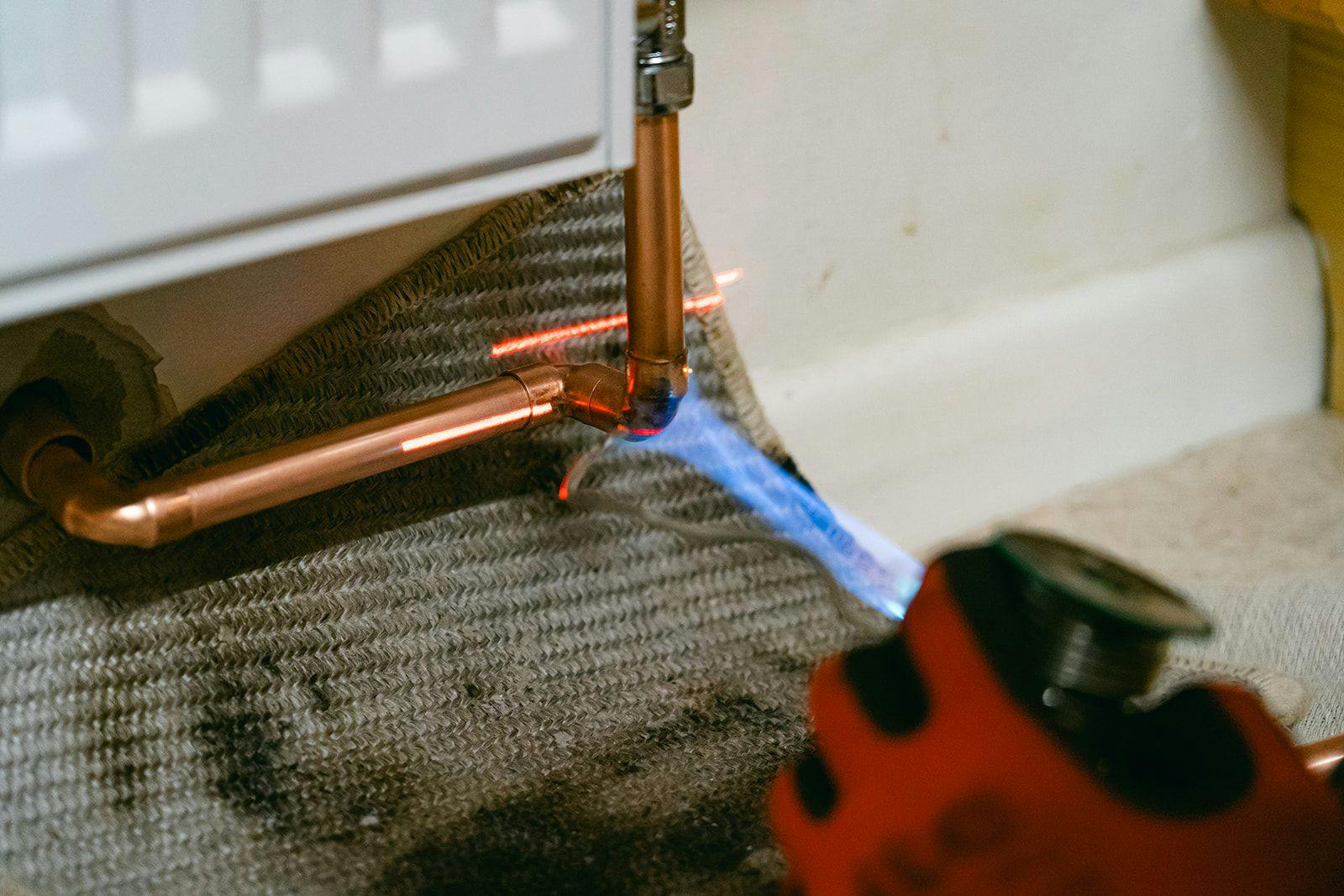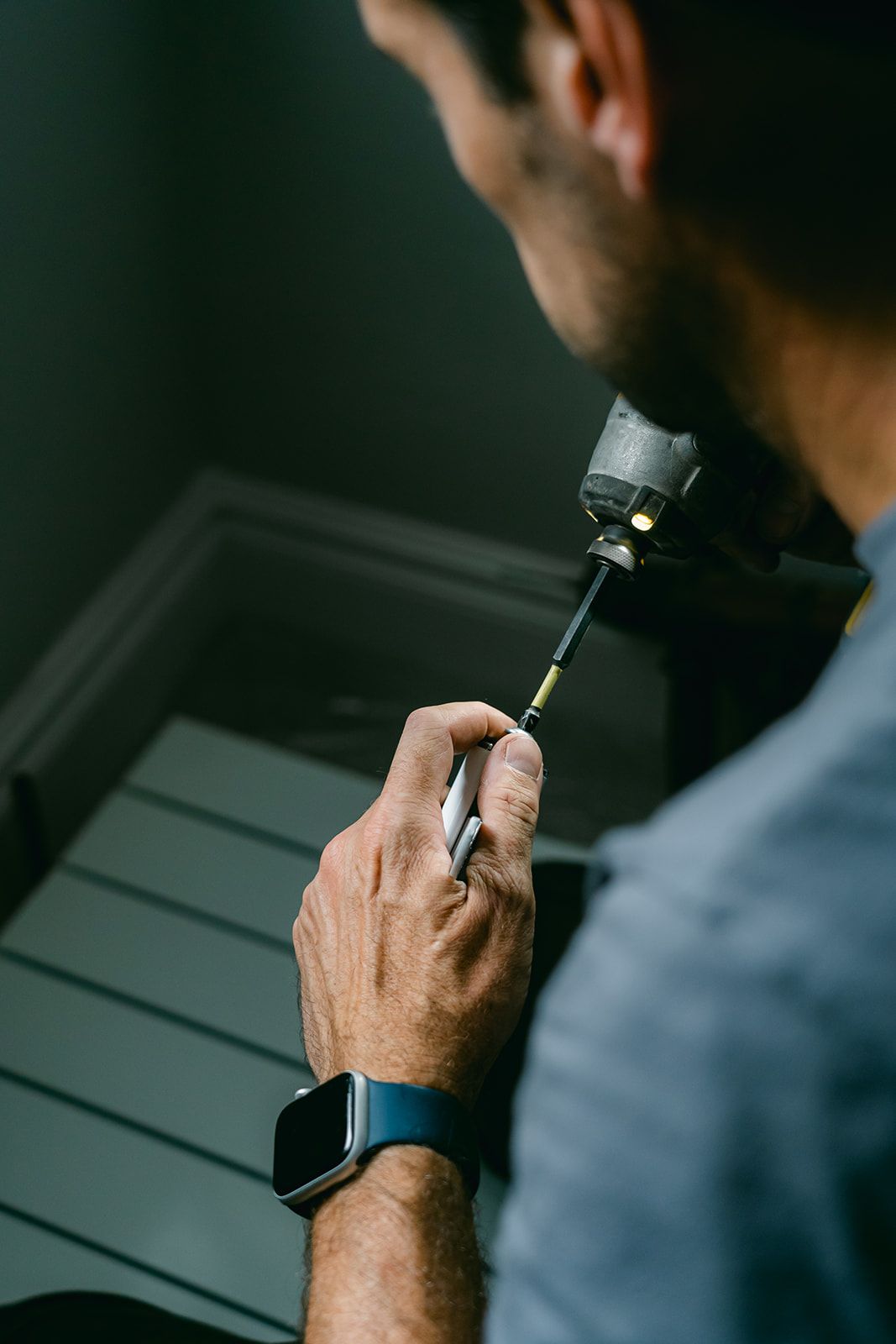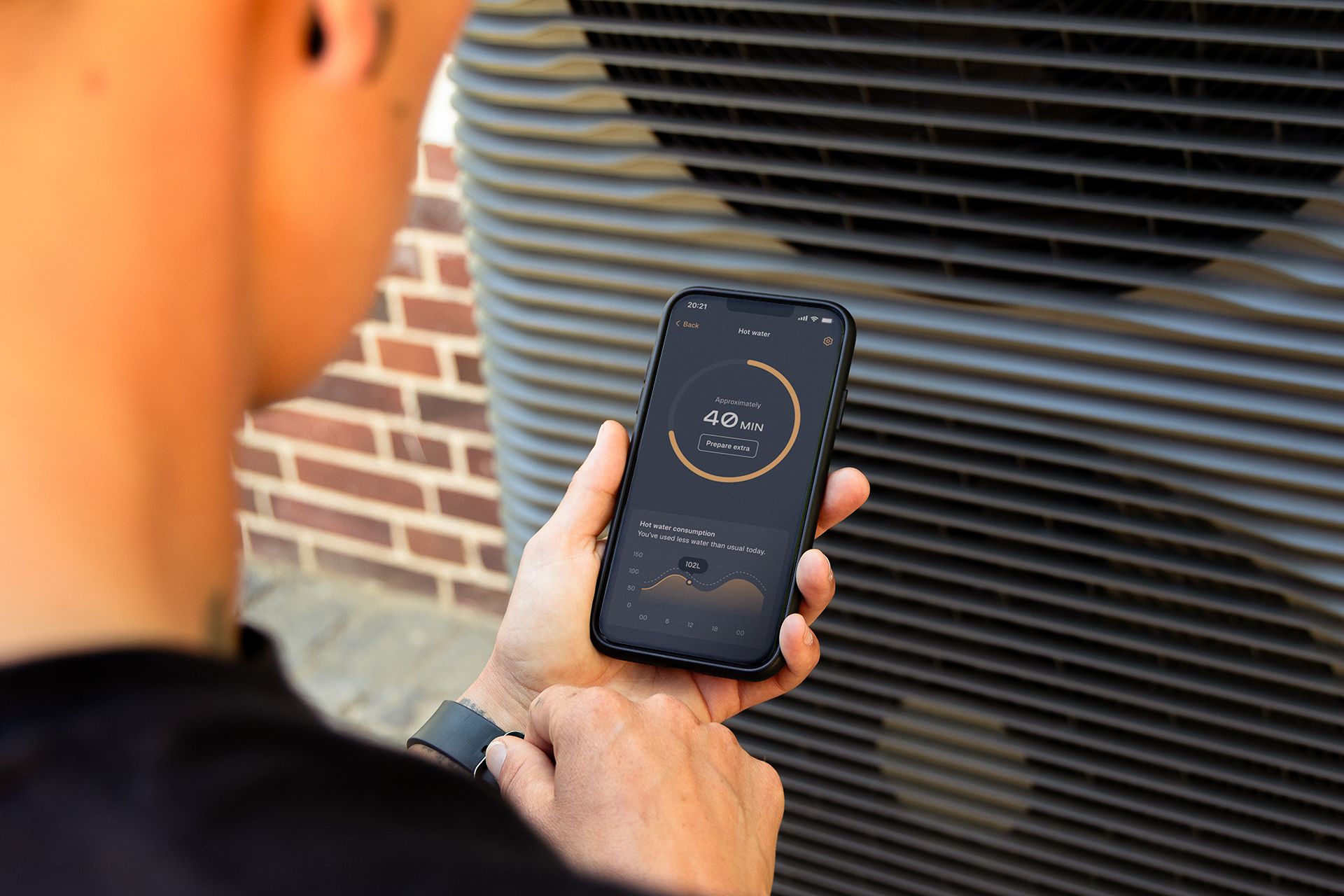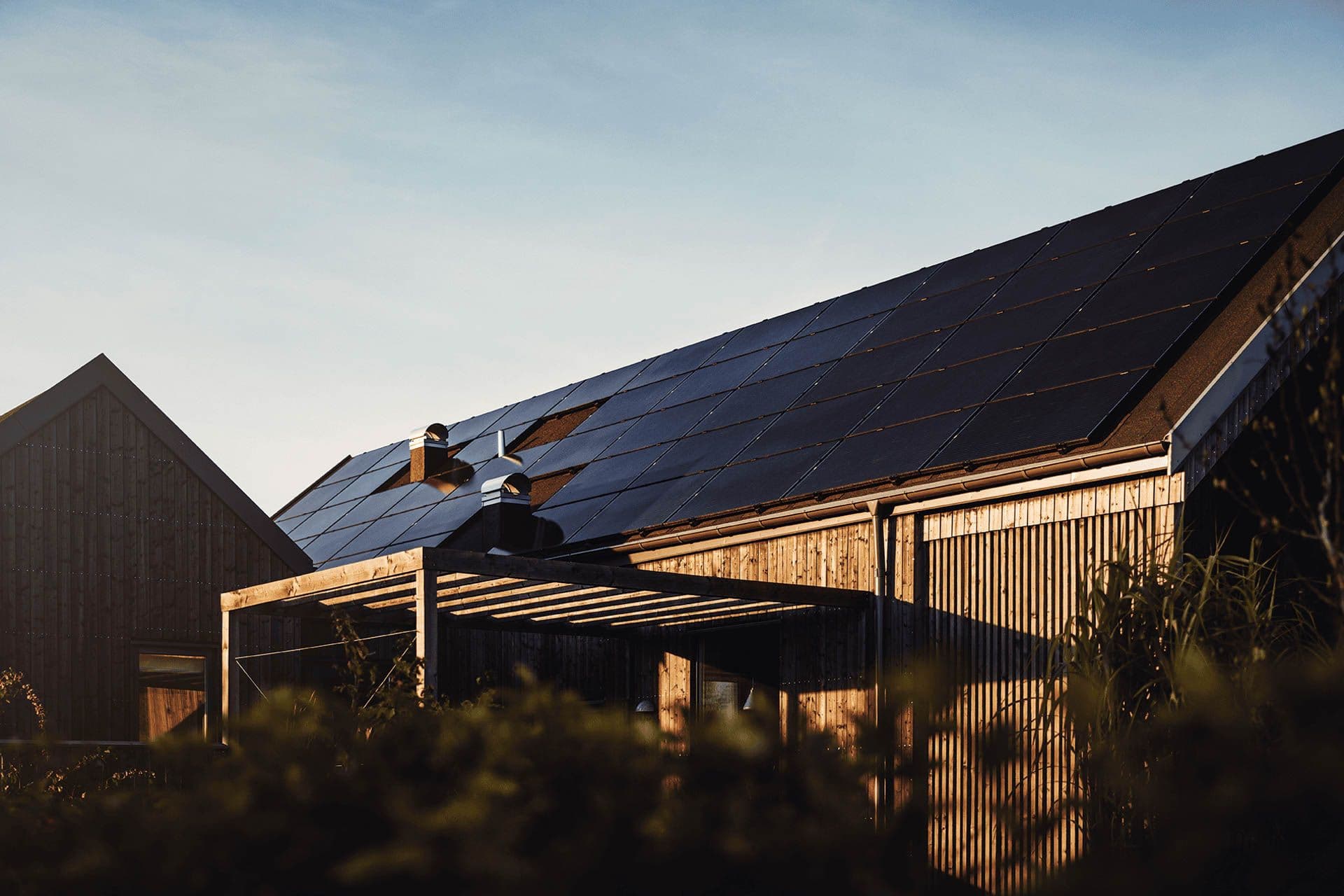31 January 2024
5 minute read
Written by:

Carl Robinson
Content Manager
Are microbore pipes compatible with air source heat pumps?

Does an air source heat pump work with microbore pipework?
Yes, your home can still benefit hugely from a heat pump even when you have microbore pipes in your home. Whilst microbore isn’t the ideal pipework for a heat pump, they can still provide you with cosy household temperatures with a few simple tweaks – even on the coldest day of the year.
What is microbore pipework?
Microbore pipework is a smaller type of pipework used in homes. It measures under 15mm in diameter and is usually made of either plastic or copper.
Why was microbore pipework used?
Microbore pipes were typically installed because they were cheaper and faster to install compared to traditional pipework. This is because a single length of microbore pipe can be easily bent by hand and be installed from a manifold to a radiator.
These pipes are well-suited for boilers that transport hot water to radiators at a low flow rate, meaning less water travelling through the system. Microbore pipes are much less popular today as they’re easy to damage and become blocked if poorly maintained.
Technical guide: How does a heat pump work with microbore pipework?
A heat pump can still work with your microbore pipes by cleverly splitting the heating system to run at different flow rates. The heat pump also needs to run at a higher temperature than if it was connected to a traditional pipe system.
Let’s look in more detail:
Your typical air source heat pump runs with a five-degree temperature difference (delta T) between the water entering the radiator (55°C) and leaving (50°C). At these comparatively low temperatures, water must travel through the radiator faster to minimise heat loss. However, microbore pipework doesn’t allow the flow rate needed to achieve this. To adjust to this reality, we simply increase the delta T to 10, which reduces the flow rate and gives the heat more time to leave the radiator.
At this new delta T setting, water enters the radiator at 55°C and leaves at 45°C, which lowers the median temperature of the water inside the radiator by 2.5°C (52.5°C vs 50°C). To compensate, you may need larger, or more, radiators to ensure your heat pump runs efficiently and your home stays warm throughout the year.
Why isn’t microbore pipework a perfect match for an air to water heat pump?
Air to water heat pumps run on lower flow temperatures and higher flow rates than a traditional heating system.
Because microbore pipes are small, they restrict the amount of hot water that can flow into your heating system (known as your flow rate). Instead of a high flow rate, the thinner pipes mean you have to rely on a high flow temperature for your radiator system. This negatively affects your efficiency, as heating systems should run at lower temperatures where possible.
Key issues when using a heat pump with microbore pipework
Microbore pipes can be easily bent out of shape – just like they can be bent into shape, it’s easy to kink this pipework out of shape, too.
If the flow rate is too high, the pipe can be noisy and erode – which is a sign you might need bigger radiators or more radiators to meet your demand for heating.

Pipes that are microbore can be prone to blockages – but usually in a dirty system. When Aira installs your heat pump, we’ll fit filters and inhibitors to reduce rusting or limescale in the system, and can even ‘powerflush’ the whole system if required. After that, you can simply remove and rinse the filters under a tap.
How does microbore pipework affect the efficiency (SCOP) of the heat pump?
When combined with the microbore pipe’s small size, the efficiency is negatively impacted, as the water flow rate from the pipes to the radiator is reduced. This means the water has to be hotter to achieve the heat output required to keep rooms cosy, or additional radiators will be required.
The efficiency of home heating devices is measured by SCOP, or Seasonal Coefficient Of Performance, which shows the useful energy provided by every unit of energy used over time. A heat pump generally has a SCOP of around 4.0 – and even with this restrictive micropore piping, you can achieve these levels of efficiency when you correctly install a heat pump.
What can I do to maximise my heat pump efficiency with microbore pipework?
Reduce your home’s heat loss
To keep maximum efficiency with microbore pipes for your heat pump, it’s a good idea to keep your home well-insulated. By reducing your heat loss, your heat demand is less, meaning an even greater saving on your energy bills and a slimmer chance you’ll need to drastically increase the flow temperature of your air source heat pump or install more radiators.
Separate your system with clever design
You can hydraulically separate your heat pump system by separating your pump circuit and the heating circuit to allow them to run at different, optimised flow rates. Nobody expects you to be an energy expert, so if you’re not sure how to do this, Aira experts will design and install the system for you.
Repipe the system
As you’d expect, repiping is a disruptive and time-consuming task, so it is usually considered a last resort to let your heat pump live in harmony with your home.

What other pipes affect how an air source heat pump system is designed?
Plastic push fit plumbing can withstand pressure and withstand harsh winters, making them a solid choice. However, due to the inserts at each fitting, this type of pipe is restricted which can have a negative effect on the higher flow rate required for your heat pump.
Underfloor heating pipes (or UFH) are also made from plastic, but they run using a single length of pipe around a circuit. This is a great low-temperature heating system choice for heat pumps.
Press Fit plumbing uses standard copper pipes ranging from 15mm to 35mm. The fitting is pressed onto the pipe by a machine, while an o-ring makes a watertight seal. This is a clean, flame-free method that keeps the system clean as no flux is used, meaning the flow rates are excellent for your heat pump.
What type of house do you live in?
Keep learning
Similar articles to expand your knowledge

Published today
Carl RobinsonThe Warm Homes Plan: what it really means for your energy bills
The UK’s new Warm Homes Plan confirms one thing: the future of cheaper energy is clean, electric homes. Here’s what the plan really means for homeowners. And how heat pumps, solar and home batteries can cut your bills long before 2030.

Published at 15 Jan 2026
Carl RobinsonIs a heat pump ideal for your semi-detached home?
Think heat pumps are only for large detached homes? In reality, semi-detached houses are perfectly suited to them. We delve into why heat pumps work so well in these homes and whether yours is ready for the swtich.

Published at 6 Jan 2026
Carl RobinsonSolar panels with home battery storage: is it worth it?
Solar panels generate free, 100% clean energy, but a home battery is what helps you use more of it. By storing excess solar power for later, battery storage can make solar far more effective. Here’s why solar and batteries belong together. And where Aira fits in.

Published at 19 Dec 2025
Carl RobinsonIs a heat pump ideal for your single-family detached home?
If you own a single-family detached home, you’re already in a strong position to switch to a heat pump. With full control over your space, insulation and energy use, heat pumps can deliver lower bills, steadier comfort and lower emissions all year round. Here’s what to know about performance, costs and everyday life with a heat pump in a single-family detached home.

Published at 17 Dec 2024
Carl RobinsonHeat pump efficiency explained: When is a heat pump most efficient and why
Heat pumps are the most efficient way to heat a UK home and are typically 4 times more efficient than a gas boiler. But what actually drives that efficiency? And when do heat pumps perform at their best? This guide breaks it down simply, from COP and SCOP to the real factors that shape performance.

Published at 2 Dec 2025
Carl RobinsonDo heat pumps work in older homes?
Thinking heat pumps are just for new builds? Think again. Many older homes can run a heat pump efficiently and affordably – cutting energy bills, reducing carbon emissions, and future-proofing your home. Just as a heat pump in a newbuild home would.